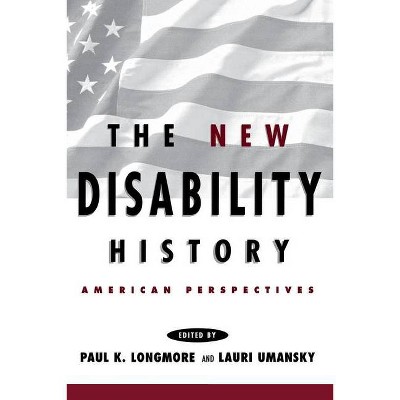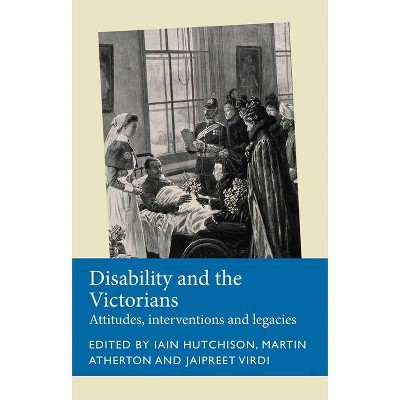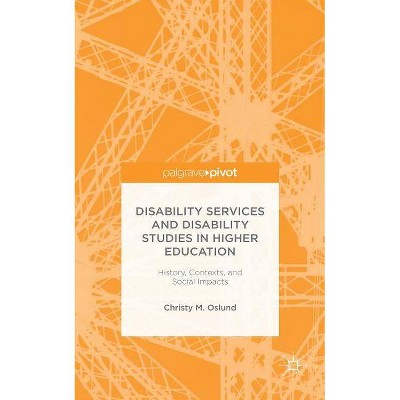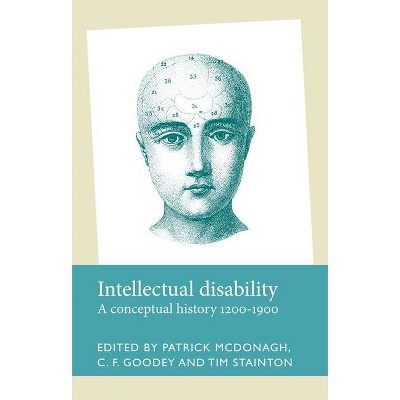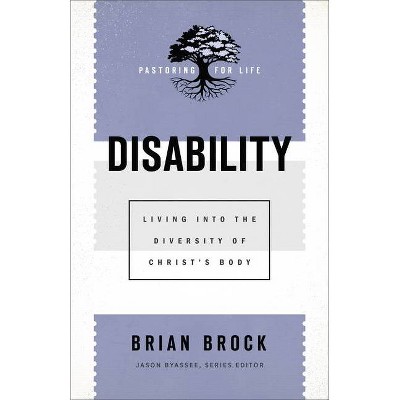Eradicating deafness? - (Disability History) by Marion Andrea Schmidt (Hardcover)

Similar Products
Products of same category from the store
AllProduct info
<p/><br></br><p><b> About the Book </b></p></br></br>How did American geneticists go from fearing the dysgenic effects of deaf intermarriage to considering modern biotechnology a threat for Deaf culture? This book provides insight into changing ideas of what deafness is, what science and medicine should achieve, and to the transformative effect of exchange between scientists and deaf communities.<p/><br></br><p><b> Book Synopsis </b></p></br></br><p>Is deafness a disability to be prevented or the uniting trait of a cultural community to be preserved? Combining the history of eugenics and genetics with deaf and disability history, this book traces how American heredity researchers moved from trying to eradicate deafness to embracing it as a valuable cultural diversity. It looks at how deafness first came to be seen as a hereditary phenomenon in the first place, how eugenics became part of progressive reform at schools for the deaf, and what this meant for early genetic counselling. Not least, this is a story of how deaf people's perspectives were pushed out of science, and how they gradually reemerged from the 1950s in new cooperative projects between professionals and local signing deaf communities. It thus sheds light on the early history of culturally sensitive health care services for minorities in the United States, and on the role of the psycho-sciences in developing a sociocultural minority model of deafness. <br /> <br /> For scholars and students in deaf and disability studies and history, as well as to health care professionals and activists, <em>Eradicating deafness? </em>offers new insight into changing ideas about medical ethics, reproductive rights, and the meaning of scientific progress. Finally, it shows how genetics came to be part of recent arguments about deafness as a form of biocultural diversity.</p><p/><br></br><p><b> From the Back Cover </b></p></br></br>Is deafness a disability to be prevented or the uniting trait of a cultural community to be preserved? Combining the history of eugenics and genetics with deaf and disability history, this book traces how American heredity researchers moved from trying to eradicate deafness to embracing it as a valuable cultural diversity. It looks at how deafness first came to be seen as a hereditary phenomenon in the first place, how eugenics became part of progressive reform at schools for the deaf, and what this meant for early genetic counselling. Not least, this is a story of how deaf people's perspectives were pushed out of science, and how they gradually reemerged from the 1950s in new cooperative projects between professionals and local signing deaf communities. It thus sheds light on the early history of culturally sensitive health care services for minorities in the United States, and on the role of the psycho-sciences in developing a sociocultural minority model of deafness. For scholars and students in deaf and disability studies and history, as well as to health care professionals and activists, <i>Eradicating deafness? </i>offers new insight into changing ideas about medical ethics, reproductive rights, and the meaning of scientific progress. Finally, it shows how genetics came to be part of recent arguments about deafness as a form of biocultural diversity.<p/><br></br><p><b> Review Quotes </b></p></br></br><br>'Schmidt (Univ. of Göttingen Medical Center) documents the historical attempts to eradicate deafness genes through coercive and restrictive measures including marriage counseling and family planning practices in order to achieve normalization, as well as the 20th-century embrace of biodiversity and of being Deaf as a situation entailing cultural/linguistic differences. In 1977 this reviewer sat in McCay Vernon's psychology class alongside Deaf classmates, whom he asked to reflect on their etiologies and family histories. Vernon's respect for Deaf culture and sign language informed his research in genetics and his genetic counseling practice, which aimed to provide self-knowledge as well as psychological and emotional support. Vernon's work, among others cited in this book, led the historic shift in perceptions, paradigms, and terminology about being Deaf, redirecting genetics research and genetic counseling. Prior to this shift, perceptions about genetics and deafness followed a pathological/curative paradigm. But the new sociocultural perspective surfaced and embraced both signing as a cultural practice and population diversity as a norm. Previously used terms, e.g., risks have now shifted to chances, reducing the blame and stigma of this disability. Genetic counseling now supports the client in deciding which services to use, which decision to take, and what is considered a pathological condition, along with providing access to appropriate information.' <i>--J. F. Andrews, emerita, Lamar University</i> Summing Up: Recommended. Graduate students, faculty, and professionals. Reprinted with permission from <i>Choice Reviews</i>. All rights reserved. Copyright by the American Library Association. '[...] this valuable work stands out in its nuanced exploration of the in-between places.' <i>Social History of Medicine</i> 'A masterful study of the history of genetic deafness research, <i>Eradicating Deafness? </i>exemplifies how new historical perspectives can be developed by merging disability history with the history of science.' <i>European Journal for the History of Medicine and Health </i><br><p/><br></br><p><b> About the Author </b></p></br></br>Marion Andrea Schmidt is a Research Associate at the Department of Medical Ethics and History of Medicine at the University Medical Center Göttingen
Price History
Cheapest price in the interval: 120 on November 8, 2021
Most expensive price in the interval: 120 on December 22, 2021
Price Archive shows prices from various stores, lets you see history and find the cheapest. There is no actual sale on the website. For all support, inquiry and suggestion messagescommunication@pricearchive.us
